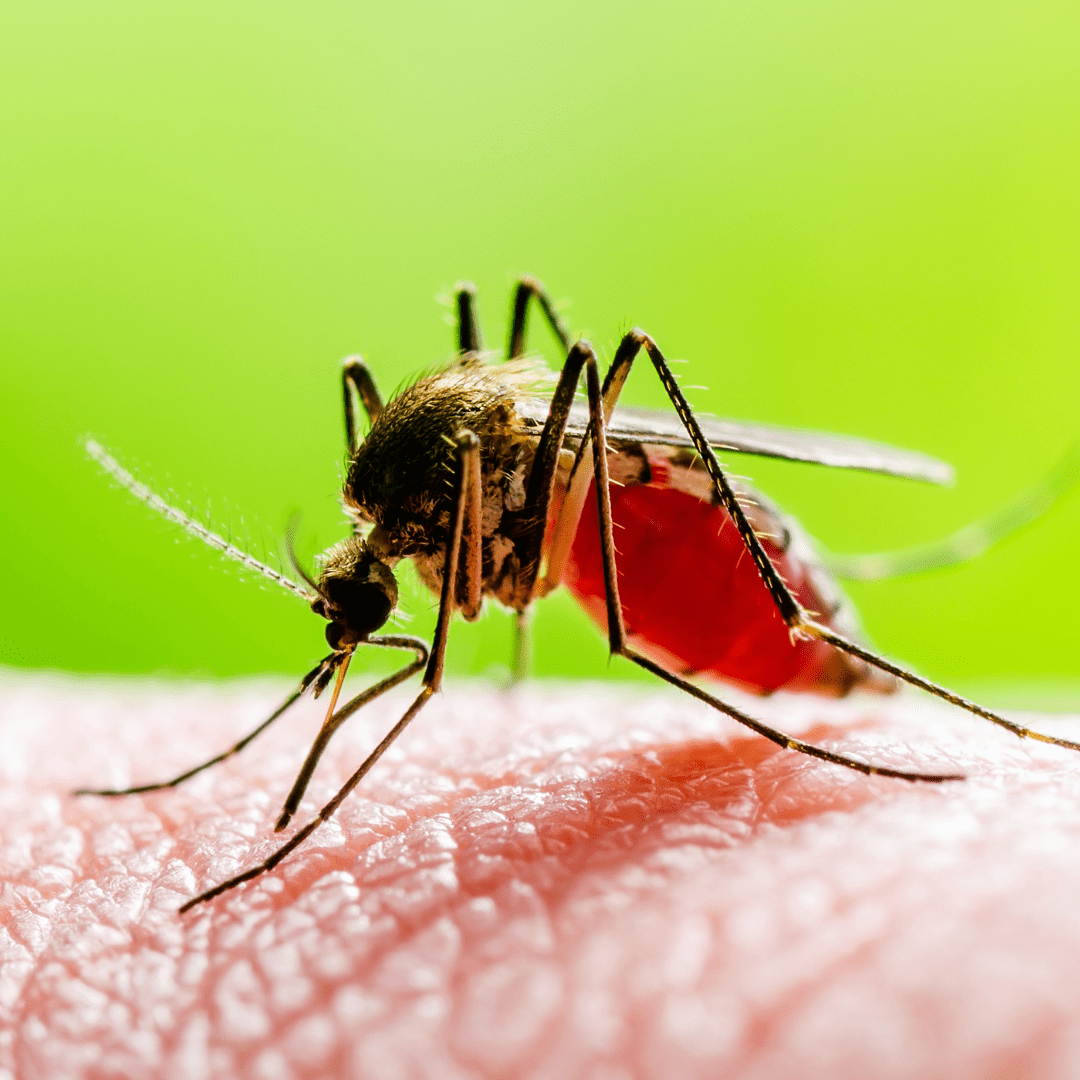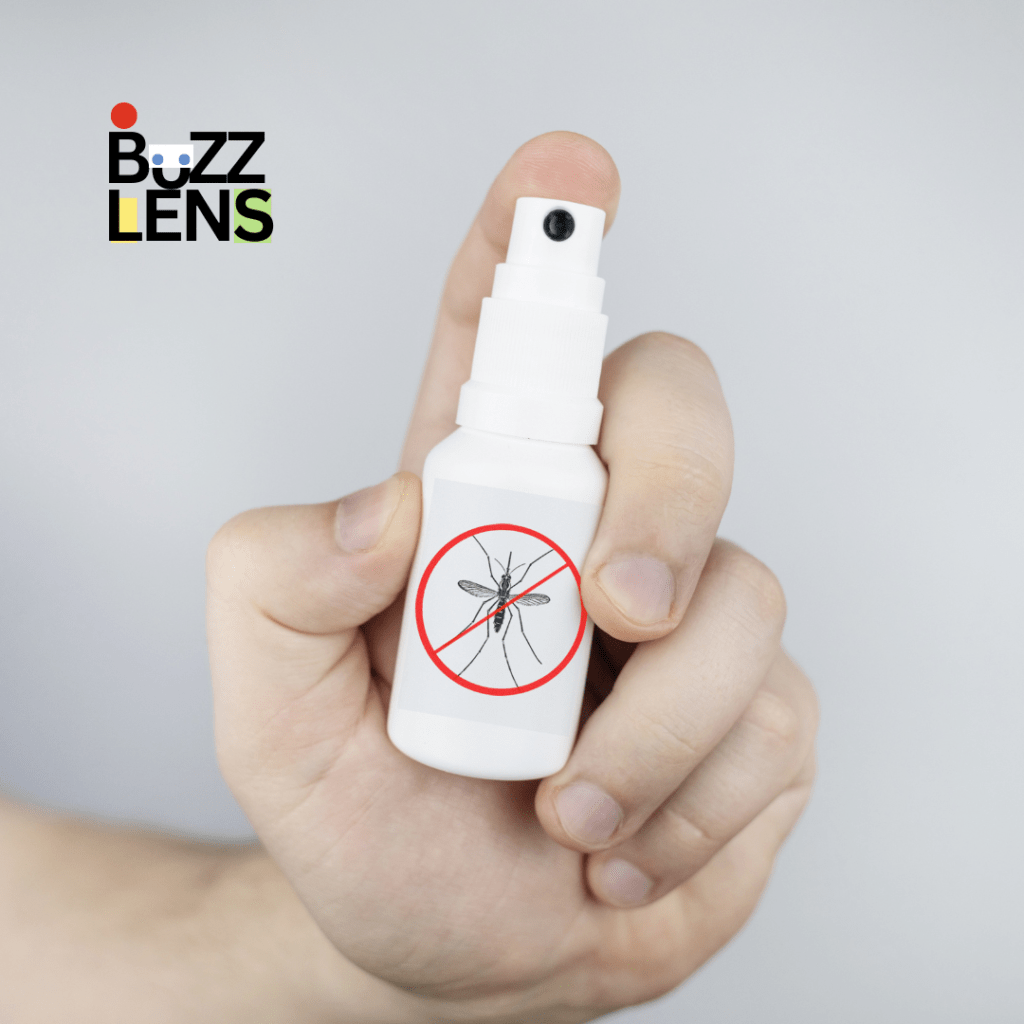Health
How to Avoid Mosquito Bites: Effective Tips and Strategies
Published
1 year agoon
By
Wilson Mark
To avoid mosquito bites, use repellents, wear protective clothing, and eliminate standing water where mosquitoes breed. Preventative measures are essential for reducing bites and the risk of mosquito-borne diseases.
Why It’s Important to Avoid Mosquito Bites
Mosquitoes aren’t just annoying pests; they can transmit serious diseases such as malaria, dengue fever, Zika virus, and West Nile virus.
With over 3,500 species of mosquitoes, these insects can thrive in various environments, making it crucial to know how to protect yourself effectively.
By understanding the right prevention strategies, you can reduce the likelihood of bites and limit exposure to potentially dangerous pathogens.
Common Situations That Attract Mosquitoes

Mosquitoes are attracted to several factors that may increase your chances of being bitten:
- Carbon dioxide: Mosquitoes are attracted to the carbon dioxide we exhale.
- Body odor and sweat: They are also drawn to lactic acid, ammonia, and other compounds found in sweat.
- Heat and movement: Mosquitoes are attracted to body heat and the movement of their targets.
- Standing water: Female mosquitoes lay eggs in stagnant water, so areas with standing water are prime breeding grounds.
- Time of day: Many mosquito species are most active during dawn and dusk.
Also Read: Plymouth, Massachusetts Closes Parks at Night Amid High Risk of Deadly Mosquito-Borne Disease
How to Avoid Mosquito Bites: Key Prevention Methods
Use Effective Insect Repellents
Insect repellents are one of the most reliable ways to prevent mosquito bites.

Here are the most common types:
- DEET (N, N-diethyl-meta-toluamide): One of the most effective repellents, DEET-based products can provide protection for several hours depending on the concentration. Products with 20%-30% DEET are generally recommended.
- Picaridin: An alternative to DEET, picaridin is a synthetic compound that repels mosquitoes for up to 8 hours and is less likely to irritate the skin.
- Oil of Lemon Eucalyptus (OLE): This plant-based repellent is effective for up to 6 hours and is a great option for those who prefer natural products.
- Permethrin: Although not for direct skin application, permethrin can be sprayed on clothing, shoes, and camping gear to repel mosquitoes. It remains effective after multiple washes.
Wear Protective Clothing
Clothing can act as a physical barrier between you and mosquitoes.

Here are tips for what to wear:
- Long-sleeved shirts and pants: Wearing loose-fitting long sleeves and pants can reduce the amount of exposed skin.
- Light-colored clothing: Mosquitoes are more attracted to dark colors, so opt for lighter shades when spending time outdoors.
- Treated clothing: Consider purchasing clothing treated with permethrin, which can offer extended protection against mosquitoes.
Also Read: What Is Sloth Fever? Understanding the Oropouche Virus as It Spreads to the United States
Eliminate Standing Water

Since mosquitoes breed in standing water, removing any potential breeding sites near your home is crucial:
- Empty outdoor containers: Make sure to empty buckets, flowerpots, and birdbaths regularly.
- Clean gutters: Mosquitoes can breed in clogged gutters, so keeping them clean prevents water from pooling.
- Fix leaks: Check for any leaks around your home that could lead to standing water and repair them promptly.
- Use mosquito dunks: These products release larvicide into standing water, killing mosquito larvae before they develop into biting adults.
Install Physical Barriers

Physical barriers can offer additional protection from mosquitoes, especially in homes and outdoor spaces:
- Window and door screens: Install tight-fitting screens on doors and windows to keep mosquitoes out.
- Mosquito nets: If you’re sleeping outdoors or in areas with high mosquito activity, use mosquito nets over your bed or tent.
- Screened porches: Consider screening in outdoor areas like porches to create a bug-free relaxation zone.
Reducing Mosquito Activity in Your Environment
Preventing mosquitoes from gathering in your living areas can significantly reduce the risk of bites.
Use Mosquito Traps
Mosquito traps attract mosquitoes with carbon dioxide and other bait, trapping them inside. While these traps alone may not eliminate all mosquitoes, they can reduce their population in the area.
Mosquito-Repelling Plants
Certain plants are known to naturally repel mosquitoes, such as:
- Citronella: This fragrant plant is commonly found in candles and sprays and is effective at keeping mosquitoes away.
- Lavender: The scent of lavender may repel mosquitoes.
- Marigold: Planting marigolds around your home can deter mosquitoes and other insects.
Also Read: What Are Antibiotics for UTI? Types, Uses, and Effectiveness
Use of Fans
Fans can disrupt mosquitoes’ flight patterns. Using a fan in outdoor spaces can create enough air circulation to make it harder for mosquitoes to land on you.
Avoiding Mosquitoes When Traveling
When traveling to areas with a high mosquito population, particularly in regions where mosquito-borne diseases are prevalent, extra precautions should be taken:
- Pack insect repellents: Ensure you have a reliable repellent suited for the climate and mosquito species in the area.
- Pre-treat clothing and gear: Spray permethrin on clothing and gear before traveling to high-risk areas.
- Stay in well-screened accommodations: Choose lodging with screens or air conditioning to limit exposure to mosquitoes.
Treating Mosquito Bites
Despite your best efforts, it’s still possible to get bitten.
Here’s how to treat bites:
- Wash the area: Clean the bite with soap and water to prevent infection.
- Apply anti-itch cream: Use hydrocortisone cream or calamine lotion to soothe itching.
- Avoid scratching: Scratching can lead to infection or scarring. Try to avoid irritating the bite further.
- Use cold compresses: Applying a cold pack can reduce swelling and relieve itching.
Mosquito-Borne Diseases to Be Aware Of
Mosquitoes are responsible for spreading numerous diseases worldwide.
Here are a few common ones to watch for:
Malaria

Malaria is transmitted by the Anopheles mosquito and is prevalent in tropical and subtropical regions. Symptoms include fever, chills, and flu-like illness. Malaria can be life-threatening if not treated promptly.
Dengue Fever

Spread by the Aedes mosquito, dengue fever can cause severe joint pain, rash, and high fever. In extreme cases, it can develop into dengue hemorrhagic fever, which can be fatal.
Also Read: A Faster Way to Fat Loss: Effective Strategies for Sustainable Weight Loss
Zika Virus

The Zika virus, transmitted by Aedes mosquitoes, gained international attention due to its association with birth defects like microcephaly. Symptoms include fever, rash, and joint pain.
West Nile Virus

This virus, carried by Culex mosquitoes, is found in various regions and can cause flu-like symptoms. In severe cases, it can lead to encephalitis or meningitis.
Take Action to Prevent Mosquito Bites
Mosquito bites can range from being a mild annoyance to posing a serious health risk due to the diseases they carry.
By using insect repellents, wearing protective clothing, and eliminating standing water, you can significantly reduce your chances of getting bitten.
When traveling, be extra cautious by choosing well-screened accommodations and using preventative products like permethrin.
Remember, prevention is key, so always take the necessary steps to protect yourself and your family from mosquitoes.
You may like
Health
Level up casino reviews Australia edition
Published
7 months agoon
July 22, 2025By
Wilson MarkLevel up casino reviews Australia edition
In this blunt review, we break down everything you should know about level up casino reviews for Australian players. Find out what matters, which platforms to consider, and pitfalls to avoid. If you’re thinking about joining or comparing online casinos, this is your guide. Get facts, not hype.
Popular Australian Casinos at a Glance
Pokies Madness: Grab 250% Up to $400 & 100 FS
Casino in Your Pocket: 110% Up to $100 & 120 Spins
Pokies Paradise: 200% Up to $2,000 + 150 Free Spins
Start Winning: 300% Bonus Up to $1000 & 75 Spins
Pay with PayID: 50% Match to $400 & 200 Free Spins
Go Big: 175% Welcome Up to $150 & 75 Spins
30% Cashback Every Week – Up to $100 Back
Jump In: 120% Bonus Up to $250 & 40 Free Spins
Aussie Players Welcome: 50% Up to $250 + 60 FS
Welcome Gift: 150% Match Up to $400 + 200 FS Included
Free Play: $100 Bonus + 15 Spins Without a Deposit
Get Started: 300% Bonus Up to $2500 + 150 Free Rounds
Intro Offer: 80% Bonus Up to $400 & 60 Free Spins
Stack the Deck: 300% Match Up to $100 & 75 Spins
Welcome Gift: 150% Match Up to $400 + 200 FS Included
Unlock 20 Free Spins on Your First Deposit
Blackjack Bonus: 80% Up to $750 on Your First Deposit
VIP Lounge Access: 175% Up to $1000 + 100 FS
Midweek Reload: 30% Bonus Up to $300 & 250 FS
High Roller Special: 175% to $3000 + 25 Free Spins
Best slot games on level up casino reviews
Online pokies and slots offer fast, exciting gameplay with instant outcomes and the possibility of sizable rewards. Below, you’ll find a curated selection of the hottest online pokies and slots trending among Australian players. Try your luck or explore new titles directly from home.
Top Online Casino Services and Games
Licensed Australian casinos deliver diverse services, from real money pokies and live-dealer games to poker tables, blackjack, and original skill-based experiences. Level up casino reviews cover which providers offer the best mix. Choose based on your preferences for big wins, variety, or strategy.
Popular Australian Casinos at a Glance
- LevelUp Casino
- Punt Casino
- National Casino
- Casino Rocket
- Fair Go Casino
- Joo Casino
- King Johnnie Casino
Top Online Casino Services and Games
- Online poker rooms
- Real money pokies
- Progressive jackpots
- Live dealer tables
- Blackjack tournaments
- Roulette games
- Baccarat and more
Best Slots and Pokies You Can Play
- Wolf Gold
- Big Bass Bonanza
- Buffalo King
- Gates of Olympus
- Starburst
- Temple Tumble
- Sweet Bonanza
- Book of Dead
- Money Train 2
- Aztec Magic
How Deposits and Withdrawals Work
Australian casino sites make depositing simple with debit cards, e-wallets, and crypto options. Withdrawals usually take from several hours up to five days, with verification needed for first-time requests. Daily and weekly withdrawal limits apply. Review each casino’s financial terms before signing up.
| Payment Method | Deposit Time | Withdrawal Speed |
|---|---|---|
| Visa/MasterCard | Instant | 1-3 days |
| Neosurf | Instant | N/A |
| Bitcoin | Instant | Within 1 day |
| Skrill | Instant | 1-2 days |
Mobile Casino Experience in Australia
Most Aussie online casinos offer sleek mobile sites or dedicated apps for Android and iOS. Features include mobile-only bonuses, quick game loading, and fast deposits. All major pokies and live games work on smartphones and tablets.
Bonuses and Promotions
Welcome packages, no deposit spins, and reload bonuses boost your bankroll. Wagering requirements typically range from 20x to 50x. Always check bonus expiry and eligible games. VIP rewards systems offer cashback, fast payouts, and event tickets for regulars.
Security and Fair Play Ensured
Look for gambling operators licensed by international authorities. All games should use RNG technology for fairness. SSL encryption protects your data. Independent audits are a positive sign. Customer funds should stay segregated from operations accounts.
Customer Support and Player Care
Quality live chat is now standard. Hotlines and email support offer extra layers. Expect a response within minutes during Aussie business hours and detailed FAQ sections for self-help. Multilingual staff are available at leading casino brands.
Responsible Gambling Tools & Advice
Responsible gaming tools include personal deposit caps, self-exclusion, and time trackers. Accredited sites promote responsible gambling organisations. Early signs of unsafe behaviour trigger notifications or account limitations. Seek help if you feel your play is out of control.
Reading the Fine Print: Terms & Conditions
Always read the small print regarding playthroughs, max withdrawal limits, and restricted games. Terms may be updated frequently. Some casinos restrict bonus play for certain games or regions. Careful reading avoids misunderstandings and disappointment.
FAQ – level up casino reviews in Australia
What is level up casino reviews?
Level up casino reviews are independent opinions, overviews, and ratings of major online casinos available in Australia, focusing on features, reliability and user experience.
Are online casinos safe for Australians?
Licensed online casinos use security protocols and fair play policies, but always check for proper regulation before playing.
Can I win real money at Australian online casinos?
Yes, you can win and withdraw real AUD winnings if you play at certified Australian-friendly sites.
Which payment methods can I use?
Common methods include Visa, MasterCard, Neosurf, cryptocurrency, bank transfer, and popular e-wallets.
What are typical bonus wagering requirements?
Most sites ask for wagering your deposit and bonus 20-50 times before withdrawal.
Is there a best time to play online pokies?
No specific time guarantees better odds, as pokies use random number generation for each spin.
Best Online Casinos in Australia 2024
Australia’s iGaming landscape is thriving with fresh brands, innovative games and player-first bonuses, making it a great time to explore top casino sites. Whether you’re into pokies, live tables or sports betting action, the following brands are popular choices among Aussie punters. Get to know which ones stand out and why.
Aussie Play Casino Experience
Aussie Play is well known for its laid-back style and huge pokies library. Players in Australia can expect a very generous welcome bonus, easy registration and local-friendly banking options. Their mobile site works fluently on even basic phones. Customer service is on hand 24/7 via live chat.
Bizzo Casino in the Australian Market
Bizzo has quickly become a favourite due to its fast payments and over 3,000 pokies from top software providers. Aussie players can use AUD for deposits and withdrawals, and weekly free spins offers help keep the excitement high. Their tournaments are a must-try for slot fans.
Caesars Casino Down Under
Caesars, an international casino giant, also accepts Australian players with a sophisticated selection of games. From classic table games to immersive live dealer experiences, it brings a slice of Las Vegas straight to your home. Advanced encryption ensures safe and private gameplay.
Casino Swish for Pokies Fans
Casino Swish makes a mark with its slick interface and huge selection of Aussie-themed pokies. Players can join loyalty programs and claim reload bonuses tailored to regular players. Its payment process is streamlined for local convenience and quick payouts.
Casinonic: Trusted Option for Australians
Australians frequently recommend Casinonic for its speedy withdrawals, secure transactions, and quality games from Pragmatic Play, Microgaming and more. Promotions are frequent and the supporting team is responsive, ensuring an easy experience for new players.
Gets Bet: Sports Betting and More
Gets Bet wraps casino, live casino and sports betting in a single platform, ideal for Aussies who like to combine pokies and wagering. Real-time odds and a seamless mobile app attract sports enthusiasts across the country.
Golden Tiger Casino’s Reputation
Golden Tiger stands out with its big progressive jackpots, frequent bonuses and a reliable Aussie support team. Its desktop and mobile sites both run smoothly, making it a long-standing favourite for Australian casino fans.
High Roller Action
If you like higher stakes, High Roller is tailored for VIP play. Its lavish perks, cashbacks and high deposit limits attract serious punters. Withdrawal times are among the fastest in the segment.
Other Noteworthy Australian Casino Sites
The following brands also have a loyal following in Australia:
- Interwetten brings strong betting options and casino games with fast pay-outs.
- Merkur features top pokies and unique branded games with easy navigation.
- Planet7Casino is famous for on-the-spot cash bonuses and round-the-clock assistance.
-
Poker Star delivers robust poker tournaments and interactive table experiences.
- Royal Ace offers both pokies and table games; attractive for both casual and experienced players.
- SlotJoint gives hundreds of pokies and flexible payment solutions for locals.
- SlottyWay is popular for its exciting slot tournaments and weekly reload bonuses.
- Sportingbet merges betting with casino action, supporting a great range of Aussie sports and slots.
- ThePokies features a local-first approach with loads of Australiana slots.
Uptown Aces and WildCardCity
Uptown Aces focuses on generous welcome bonuses, secure payment options and unique slot themes. WildCardCity is all about urban glamour with VIP privilege schemes and handy support, ensuring top rates of player satisfaction.
WynnBet
WynnBet is gaining pace with mobile-first design and exciting promotions. Its tailored sports and casino offers appeal to players who demand both action and safety.
Responsible Gambling for Australians
Before you start spinning reels or placing wagers, remember to play responsibly. Australia has support services such as Gambling Help Online and phone helplines to provide confidential advice and help you keep gaming fun and safe. Play only with money you can afford and set limits for your entertainment.
Reference only. 18+ / 21+ where applicable
level up casino reviews
Health
Why Do People on Obesity Medications Drink Less Alcohol? Here’s What We Know
Published
1 year agoon
December 14, 2024By
Wilson Mark
Some people who take anti-obesity medications drink less alcohol. Scientists are trying to figure out why this happens.
How Anti-Obesity Drugs Impact Alcohol Use
Anti-obesity medications, such as Wegovy and Ozempic, may lower alcohol consumption. These drugs, called GLP-1 receptor agonists, are usually prescribed to help with weight loss and type 2 diabetes. However, new research shows they might also reduce drinking habits.
A recent study found that 45% of people on these drugs drank less alcohol. The study, published in JAMA Network Open, involved over 14,000 participants. Researchers believe this connection could lead to more discoveries about these medications.
Key Findings
Here’s what the study revealed:
- Participants: Over 14,000 individuals taking anti-obesity medications.
- Results: 45% of drinkers reduced their alcohol intake.
- Drugs Used: Medications included semaglutide, tirzepatide, and liraglutide.
- Who Benefited Most: Heavy drinkers and people with severe obesity saw the biggest change.
While most participants saw no change, only 2% drank more alcohol.
Why Do These Drugs Affect Alcohol?
The exact reason remains unclear.

However, experts have a few ideas:
- Impact on the Brain: These drugs may reduce cravings by changing how the brain processes rewards. This could lower the desire for alcohol.
- Lifestyle Changes: Many people make healthier choices while on these medications, such as eating better or drinking less.
- Lower Tolerance: Weight loss reduces alcohol tolerance, which might lead people to drink less.
More research is needed to confirm these theories.
Can These Drugs Treat Addiction?
Some experts are hopeful these drugs could help with addiction in the future. However, they are not currently approved for this use.
Dr. Timothy Brennan from Mount Sinai said, “These findings are exciting, but we need more studies to understand their effects on alcohol use.”
Researchers believe these drugs have potential, but it’s too early to draw conclusions.
Should You Avoid Alcohol While Taking These Medications?
You don’t have to stop drinking completely, but experts suggest being cautious.

Here’s why:
- Side Effects: Alcohol may worsen nausea or low blood sugar, which are common side effects of these drugs.
- Calories: Alcohol contains a lot of calories, which could slow your weight-loss progress.
- Health Benefits: Reducing alcohol may improve overall health and make the medication more effective.
If you’re starting a new medication, it’s a good time to evaluate your drinking habits.
What Should You Do?
If you’re prescribed medications like Wegovy or Ozempic, consider these tips:
- Notice if your cravings for alcohol change.
- Take this chance to build healthier habits.
- Talk to your doctor if you have concerns about drinking or other side effects.
What’s Next?
The link between anti-obesity medications and reduced drinking is fascinating. Scientists need more studies to understand how these drugs work.
For now, they remain a powerful option for weight management. The added benefit of possibly reducing alcohol consumption is an exciting bonus.
Health
How to Get Rid of Sulfur Burps: Effective Remedies and Prevention Tips
Published
1 year agoon
November 5, 2024By
Wilson Mark
Sulfur burps may be alleviated by changes in diet, proper water intake, and the use of pharmacy drugs, but it is crucial to know what causes them.
Sulfur Burps
Sulfur burps are bad-odour burps that smell like rotten eggs; many people experience this.
They can be painful and awkward and are sometimes coupled with other abdominal symptoms, including bloating, stomach-churning, or diarrhoea. The foul smell associated with sulfur burps emanates from hydrogen sulfide (H2S) generated inside your stomach.
To know how to treat and get rid of sulfur burps, it is essential to understand the causes that contribute to it.
This article will look at possible causes of sulfur burps, options for natural cure remedies, medical treatment, and ways of avoiding them.
What Causes Sulfur Burps?
Sulfur burps occur when hydrogen sulfide gas builds up in the stomach and is released through burping.

Various factors can contribute to the production of this gas, but here are the most common causes:
- Dietary Choices
Certain foods high in sulfur content can contribute to the production of sulfur gas. Some of these foods include:- Eggs
- Meat (especially red meat)
- Cruciferous vegetables like broccoli, cabbage, and cauliflower
- Garlic and onions
- Dairy products
- Beans and legumes
- Gastrointestinal Infections
Some infections, particularly those caused by bacteria like Helicobacter pylori or parasites like Giardia, can lead to sulfur burps. These infections can disrupt your digestive system, leading to excess gas production. - Indigestion or GERD (Gastroesophageal Reflux Disease)
Indigestion or GERD can slow digestion, allowing food to sit in the stomach longer and produce more gas. This gas can sometimes have a sulfurous smell, leading to sulfur burps. - Food Intolerances
Lactose intolerance, gluten sensitivity, or other food intolerances can cause incomplete digestion of food, leading to gas buildup and sulfur burps. - Medications
Some medications, particularly those containing sulfur compounds or antibiotics that affect the balance of gut bacteria, can contribute to sulfur burps.
Natural Remedies to Get Rid of Sulfur Burps
Although passing sulfur burps might be embarrassing, in most cases, they can be cured naturally. Below, I give you some home remedies that may help if you decide to try:
1. Stay Hydrated

Proper digestion requires that one drink enough water, which is determined by the intensity of the exercises. Drinking fluids eliminates accumulated toxins, thus ensuring the digestive system is working properly, and there is less likelihood of developing gas. Avoid sulfur burps by taking at least eight glasses of water per day.
2. Green Tea or Herbal Teas

Green tea, mint, or chamomile will also relax your tummy and reduce gas formation. Green tea, in particular, has antioxidants that can help with digestion, while peppermint helps to relax the gut.
3. Eat Smaller, More Frequent Meals

Eating large meals or taking more than necessary also puts pressure on the digestive system, resulting in information of gases, including sulfur. Dividing the portions into smaller meals that are taken frequently ensures that the body can break down the food into Sulphur without experiencing sulfur burps.
4. Avoid Sulfur-Rich Foods
If you experience sulfur burps often, you should reduce the intake of sulfur-containing foods such as eggs, broccoli, garlic, and dairy products. These foods may cause more gas production; therefore, cutting down or eliminating these foods from the diet may greatly help.
5. Try Apple Cider Vinegar

Apple cider vinegar (ACV) is one of the go-to home remedies for enhancing digestion. ACV has an impact on balancing the level of acidity in the stomach, hence facilitating the digestion of foods and decreasing the formation of sulfur gas. Ingest a glass of water mixed with 1 tablespoon of ACV, and see if it is taken before meals.
6. Use Probiotics
Probiotics are beneficial bacteria that promote healthy digestion by balancing the gut’s bacterial environment. Taking a probiotic supplement or eating probiotic-rich foods like yogurt, kefir, or sauerkraut can help prevent sulfur burps by keeping your digestive system balanced.
Over-the-Counter Remedies for Sulfur Burps
Several over-the-counter treatments are available if natural remedies aren’t enough to resolve your sulfur burps.
1. Antacids

Many recipes warn about foods that produce gas, but antacids can help neutralize stomach acid and leave your digestive system to do the work. This may be useful, especially if the sulfur burps originate from indigestion or GERD.
Table: Best OTC Medications for Sulfur Burps
| Medication Type | How It Helps | Example Products |
|---|---|---|
| Antacids | Neutralize stomach acid | Tums, Rolaids |
| Simethicone | Breaks up gas bubbles in the stomach | Gas-X, Mylanta Gas |
| Probiotics | Supports gut health | Culturelle, Align, Florastor |
2. Simethicone
It is an anti-gas drug that alters the sizes and distribution of gas in the stomach and intestines, promoting gas release without the smell.

Simethicone-containing products such as Gas-X or Mylanta Gas quickly relieve such pain.
3. Activated Charcoal
Charcoal is effective in absorbing gases and toxins in your stomach. The common formulation is a pill that can successfully minimize normal gas and sulfur-related burps.
Always check with your doctor before using charcoal supplements, as they may interfere with medications.
When to See a Doctor for Sulfur Burps
While sulfur burps are often harmless, they can sometimes signal an underlying health issue that requires medical attention.
If your sulfur burps are persistent or accompanied by other symptoms, such as severe abdominal pain, diarrhoea, nausea, or vomiting, it’s time to consult a doctor.
Here are a few conditions that may require medical evaluation:
1. Gastrointestinal Infections
As mentioned earlier, infections like H. pylori or Giardia can cause sulfur burps and other symptoms like bloating, nausea, diarrhoea, and stomach cramps. Testing for these conditions often involves stool, blood, or breath tests.
2. GERD or Chronic Indigestion
GERD or chronic indigestion can lead to frequent sulfur burps due to slowed digestion. If you experience heartburn, regurgitation, or pain after eating, consult a healthcare provider for proper diagnosis and treatment.
3. Food Intolerances or Sensitivities
Food intolerances, such as lactose intolerance or celiac disease, may cause sulfur burps. Your doctor may recommend elimination diets or tests to identify specific food triggers.
Prevention Tips: How to Stop Sulfur Burps from Coming Back
Once you’ve gotten rid of sulfur burps, preventing them from returning is essential. Here are some long-term strategies you can follow:
1. Monitor Your Diet
Pay attention to how certain foods affect your digestive system. Keeping a food diary can help you identify which foods trigger your sulfur burps so that you can adjust your diet accordingly.
2. Eat Slowly and Chew Thoroughly
Eating too quickly can cause you to swallow air, leading to gas and burping. Chewing food thoroughly helps your digestive system break down food more efficiently, reducing the chance of sulfur gas forming.
3. Avoid Carbonated Beverages
Carbonated drinks like soda and sparkling water introduce extra air into your stomach, which can lead to burping. Try to cut down on these beverages to reduce gas and sulfur burps.
4. Exercise Regularly
Regular physical activity can improve digestion by keeping things moving through your gastrointestinal tract. Even light activities like walking after a meal can help prevent gas buildup.
5. Stay Hydrated
Hydration is vital to maintaining healthy digestion. Water helps break down food and keeps things moving through your digestive system, reducing the likelihood of gas formation.
Banish Sulfur Burps for Good
Sulfur burps may be unpleasant, but they’re usually treatable with dietary changes, natural remedies, and over-the-counter medications.
Whether you’re dealing with a one-time issue or chronic sulfur burps, identifying the underlying cause is the first step toward relief.
By adjusting your diet, staying hydrated, and trying some of the remedies outlined here, you can eliminate sulfur burps and prevent them from returning.
Remember, if sulfur burps persist or are accompanied by other severe symptoms, it’s essential to consult a healthcare provider to rule out any underlying health issues.


iOS 26 Explained: Stability & The Future of iPhones
Level up casino reviews Australia edition
Magnitude 5.1 Earthquake Rattles Northern Iran — No Major Damage Reported
Trending
-

 FASHION9 years ago
FASHION9 years agoThese ’90s fashion trends are making a comeback in 2017
-

 Entertainment9 years ago
Entertainment9 years agoThe final 6 ‘Game of Thrones’ episodes might feel like a full season
-

 FASHION9 years ago
FASHION9 years agoAccording to Dior Couture, this taboo fashion accessory is back
-

 Entertainment9 years ago
Entertainment9 years agoDisney’s live-action Aladdin finally finds its stars
-

 Sports9 years ago
Sports9 years agoBoxing continues to knock itself out with bewildering, incorrect decisions
-

 Entertainment9 years ago
Entertainment9 years agoThe old and New Edition cast comes together to perform
-

 Sports9 years ago
Sports9 years agoPhillies’ Aaron Altherr makes mind-boggling barehanded play
-

 Sports9 years ago
Sports9 years agoSteph Curry finally got the contract he deserves from the Warriors




